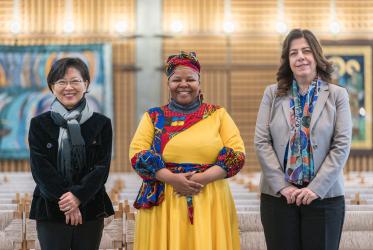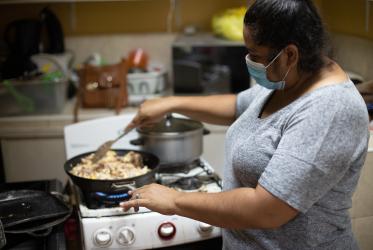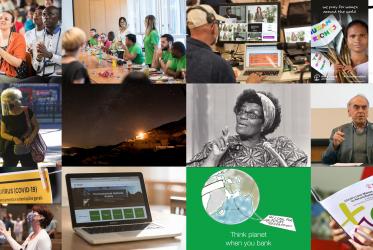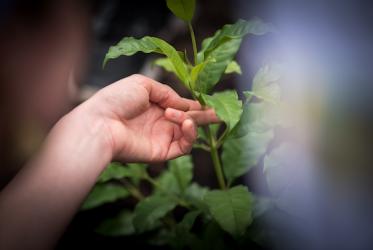Displaying 1 - 20 of 25
Three WCC commissions elect vice moderators
08 March 2024
WCC submits comments on draft UN “Pact for the Future”
12 February 2024
Church of South India eco-ministry featured on UNESCO website
17 February 2020
Doing his best without being the best
07 September 2018
Emily Welty: tide of hope for a world free from nuclear weapons
19 September 2017
WCC Blue Community implements water changes in the Ecumenical Centre
16 February 2017
WCC convenes strategic meeting on sustainable development goals
11 February 2016















